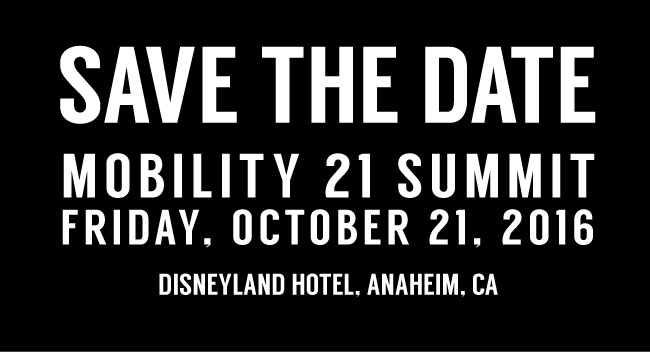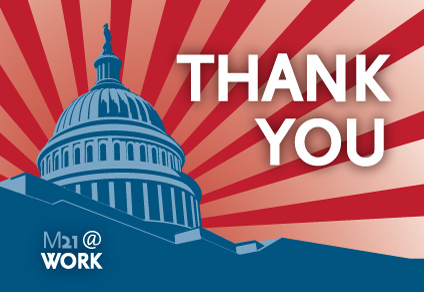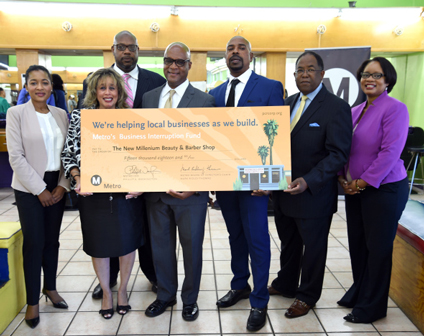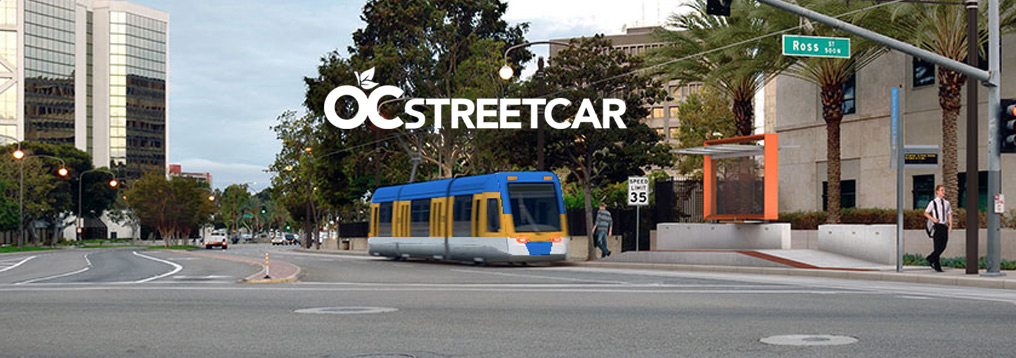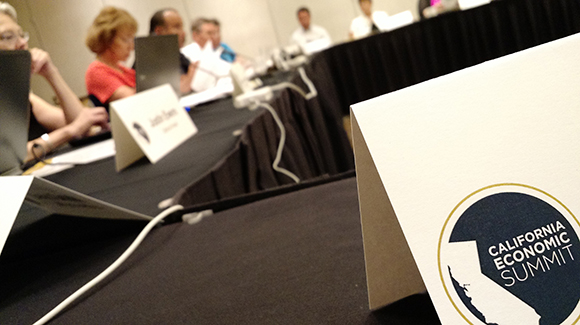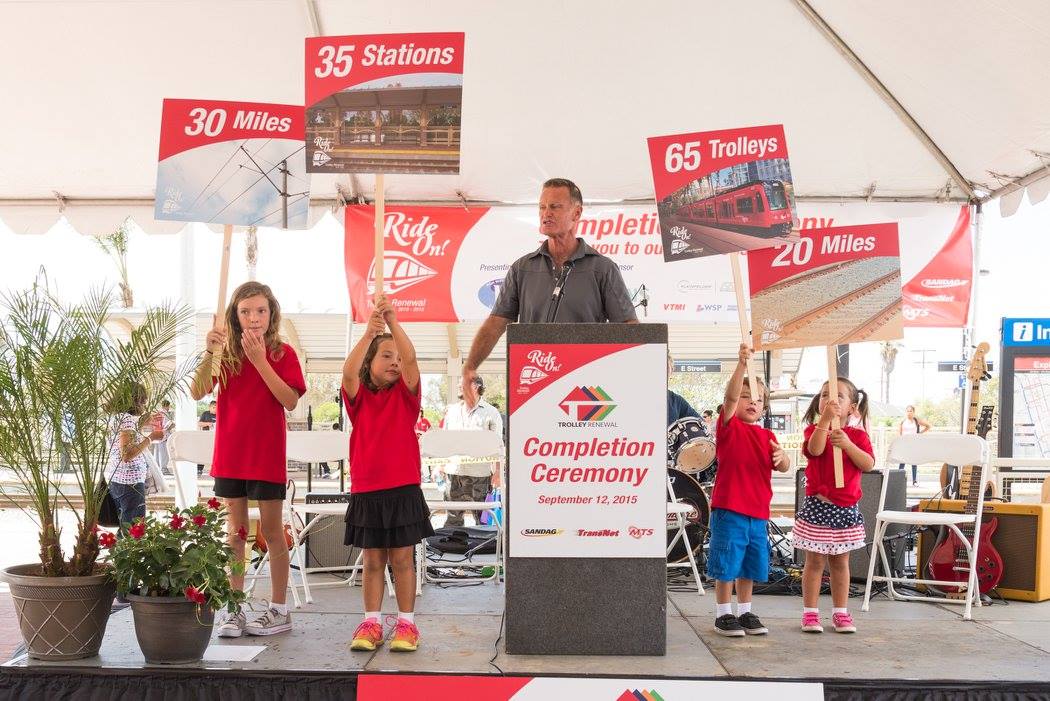Thank You For Urging Governor Brown
to Sign These Critical Bills
Thank you to more than 100 Mobility 21 members who joined forces in urging Governor Brown to sign important legislation for infrastructure. Your continued support and participation helps keeps Southern California’s transportation system and economy moving.
SB 767 (De León)
This bill would authorize the Los Angeles County Metropolitan Transportation Authority (Metro) to put a new half-cent sales tax measure on the 2016 ballot to fund transportation improvements. With voter approval, this would generate hundreds of thousands of jobs and bring billions in new investment power to the region.
AB 194 (Frazier) and AB 914 (Brown)
The bills would provide tolling authority for both statewide projects and for specific projects in San Bernardino County. Local agencies across the state are seeking innovative ways to deliver transportation improvements with limited budgets. Toll/Express Lanes offer commuters another quality of life option that can save time through guaranteed travel times, as well as to provide additional resources for multi-modal transportation solutions and overall corridor benefits.
Mobility 21 Advisory Board Member Spotlight:
Paul Hubler
Director of Government and Community Relations
Alameda Corridor-East Construction Authority (ACE)
 Paul Hubler is Director of Government and Community Relations at the Alameda Corridor-East Construction Authority (ACE), where he has worked for 12 years. Paul is responsible for securing grant funding and overseeing community and media outreach programs for the $1.7 billion ACE program of constructing rail-roadway grade separations and other improvements along the Alameda Corridor-East Trade Corridor in the San Gabriel Valley. He joined the Mobility 21 Advisory Board in 2015.
Paul Hubler is Director of Government and Community Relations at the Alameda Corridor-East Construction Authority (ACE), where he has worked for 12 years. Paul is responsible for securing grant funding and overseeing community and media outreach programs for the $1.7 billion ACE program of constructing rail-roadway grade separations and other improvements along the Alameda Corridor-East Trade Corridor in the San Gabriel Valley. He joined the Mobility 21 Advisory Board in 2015.
Paul also serves as Treasurer of the Coalition for America’s Gateways and Trade Corridors, a Washington, D.C.-based national coalition advocating for federal transportation funding for trade infrastructure projects of regional and national significance.
Prior to joining ACE, Paul was legislative and communications deputy to California Congressman and former State Senator Adam Schiff for six years. He worked in Sacramento and Washington, D.C. on legislation and efforts to secure funding for Southern California projects and initiatives. Paul’s accomplishments include working on a bill that established the Foothill Gold Line joint powers construction authority in 1998.
From 1990 to 1997, Paul worked in a series of positions, ultimately served as managing editor, for an award-winning community newspaper in the San Fernando Valley owned by the Los Angeles Times. After graduating from college in 1986, Paul worked for several years as a paralegal at the law firm of Munger, Tolles and Olson in downtown Los Angeles.
Paul has a master’s in public administration from the University of La Verne and a bachelor’s from Pitzer College in Claremont. He currently serves as a member of the Advisory Board for the University of La Verne’s nationally accredited MPA program and on the board of the San Gabriel Valley Public Affairs Network. He is immediate past president of the Southern California Chapter of the American Society for Public Administration, the second largest chapter in the United States.
Paul lives in Glendale with his wife, Patty Rhee, and their two children, Hana and Ben. He enjoys reading, hiking and skiing and has recently taken up tennis.
Mobility 21 Advisory Board Member Spotlight:
Stephen Polechronis
Senior Vice President and Transportation Business Line Leader
AECOM
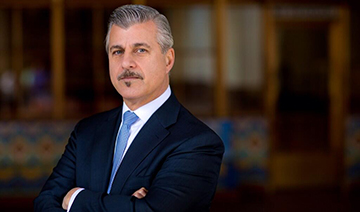 Stephen Polechronis, an AECOM senior vice president and the transportation business line leader for AECOM’s Los Angeles and Orange County offices, is a transportation industry executive and project manager with deep experience in the development, design and construction of light rail, heavy rail subway and commuter rail. He joined the Mobility 21 Advisory Board in 2015.
Stephen Polechronis, an AECOM senior vice president and the transportation business line leader for AECOM’s Los Angeles and Orange County offices, is a transportation industry executive and project manager with deep experience in the development, design and construction of light rail, heavy rail subway and commuter rail. He joined the Mobility 21 Advisory Board in 2015.
Since joining AECOM in 1998, Stephen has provided leadership for some of the company’s high-profile transportation projects, such as engineering and construction for the Metrolink commuter rail system, which serves 55 stations across Southern California; the Mid-City/Exposition light rail transit project, comprising 19 miles and 18 stations in Los Angeles; and the development of a construction management group for the Tren Urbano rail system in Puerto Rico.
As the deputy executive officer for the Los Angeles County Metropolitan Transportation Authority (1996 to1997), Stephen managed the construction of the Metro Red Line Wilshire and Vermont/Hollywood corridor, a 6.6-mile twin-tube heavy-rail subway with eight stations. In this role, he supervised more than 200 agency and consultant staff and had oversight of 11 facilities, 12 systems, and professional services contracts. He also worked with regional Federal Transit Administration staff and project management oversight consultants to assure continuing federal support and project confidence.
Stephen is active with the Los Angeles chapter of the Women’s Transportation Seminar serving as a Special Advisor to the President, the American Public Transportation Association, the Construction Management Association of America, and the Project Management Institute. Stephen is also on the Executive Committee of the Los Angeles Central City Association.
Stephen received a Bachelor of Science degree in public administration from Northeastern University.
Metro Board Chair and L.A. County Supervisor Mark Ridley-Thomas awarding the most recent business interruption fund check to New Millennium Beauty & Barber Shop Salon, nearby the Crenshaw/LAX project construction.
Metro’s Pilot Business Interruption Fund Reaches $1 Million Milestone in Grants to Small Business Impacted by Rail Construction
Metro’s groundbreaking Business Interruption Fund (BIF) pilot project has exceeded the $1 million mark in the award of 62 grants to “mom-and-pop” businesses directly impacted by construction of the Crenshaw/LAX Transit Project. BIF began operations this past February.
“Local businesses are the lifeline of a community. Since construction began on the Crenshaw/LAX line, our small businesses have been asked to endure dust, noise and significant disruption to their daily operations,” said L.A. County Supervisor and Metro Board Chair Mark Ridley-Thomas. “This million dollar milestone represents a significant and well-deserved investment in the Crenshaw Corridor. It demonstrates Metro’s commitment to helping local small businesses not only survive, but be ready to thrive when the Crenshaw line reopens.”
One of the recently awarded BIF grants that pushed the total awards beyond the $1 million mark was awarded to The New Millennium Beauty & Barber Shop Salon, 4306 Crenshaw Blvd., where excavation and construction of the underground Leimert Park Station is taking place. The sports theme barbershop is owned by Desentrie Allen. “This grant is a true blessing,” Allen said.
“We need to ensure that the transformation of L.A.’s public transportation into a world class transit system does not adversely impact our small businesses — the lifeblood of the city’s local economy,” said Los Angeles Mayor and Metro Board member Eric Garcetti. “Our Business Interruption Fund is helping the small business community thrive amidst any temporary inconveniences posed during Metro’s expansion construction.”
The New Millennium Beauty & Barber Shop was established in August 1998 in the Crenshaw corridor. In 2000 Allen purchased the building where the barbershop business is currently located. The main revenue source is its sports themed barbershop. In 2008 at its peak operations Allen had 21 independent hair professionals operating at The New Millennium. Allen owns two commercial properties on Crenshaw Boulevard. He also signed up for Metro’s BIF fund administrator, Pacific Coast Regional (PCR), Small Business Development Corporations (SBDC) services to develop a long-term strategy for both commercial properties.
“The fact that Metro has already awarded more than $1 million in grants to help small businesses that have been adversely impacted by rail construction is proof this agency backs its words with action,” said Metro Board member Jacquelyn Dupont-Walker. “Our ‘mom and pop’ businesses are the mainstay of our community and Metro recognizes how important it is to partner with them during the construction period by not only mitigating their losses and help to insure that communities truly benefit from the new transit services. Providing assistance that will help to sustain their business during the construction period and protect the local economies via the BIF is a model for the nation.”
“Metro’s commitment to assist small “mom and pop” businesses directly impacted by rail construction is in full swing and is helping these merchants weather construction so they can welcome new customers when the rail line opens,” said Metro CEO Phil Washington. “This program, approved by the Metro Board, also applies to small businesses in Little Tokyo near the Regional Connector and the Purple Line Extension Phase 1, where soon businesses will feel the construction impact.”
Per the guidelines of the BIF program businesses directly impacted by Metro rail construction can receive more than one BIF grant award yet cannot exceed $50,000 annually or 60% of annual business revenue losses. The program is being administered by PCR, a small business development corporation and a Community Development Financial Institution (CDFI) with more than 30 years of financial services experience.
The BIF is a first for Metro along with the Crenshaw/LAX pilot Business Solution Center (BSC). These economic programs continue to demonstrate Metro’s commitment to support small businesses through construction of the expanding Metro Rail system.
Who can apply for finance assistance?
Qualifying businesses are those with at least two years of continuous operating history; 25 or fewer total employees; in good standing with local, state and federal taxing and licensing authorities and those able to produce relevant financial records (e.g. gross receipts, payroll taxes, bank statements or other financial information) demonstrating a loss of business revenue directly related to the period of construction disruption. It must be noted that BIF financial assistance is only available for those businesses impacted by the three identified transit rail construction projects. Businesses located along any of Metro’s other lines do not qualify.
How to apply for financial assistance:
All small mom & pop business owners directly impacted by any of the three rail construction projects are encouraged to visit PCR at pcrcorp.org or call Angela Winston at (213) 739-2999, extension 223 to learn how to apply and or make an appointment with a BIF business advisor.
Metro also implemented the Crenshaw/LAX Business Solution Center (BSC), a pilot program to assist businesses by providing free support services to business owners including business development and financial referrals. Information about Metro’s Business Solution Center can be accessed at metrobsc.net/crenshaw
Metro has launched the Business Assistance Center serving Little Tokyo which is operated by the Asian Pacific Islander-Small Business Program (API-SBP), located at Metro’s Regional Connector Little Tokyo Community Office, 360 E. 1st Street. Operations began on Feb. 23, 2015.
Additionally, the promotional campaign Eat, Shop, Play Crenshawmetro.net/interactives/html/eatshopplay encourages residents to pledge to shop locally and win cash prizes of up to $1,000. Metro is also promoting business through its “Open for Business” video series, featuring businesses along the rail alignment.
The 8.5-mile Crenshaw/LAX Line is a $2.058 billion light-rail line that will connect the Green Line and the Expo Line. It will have eight new stations to serve the Crenshaw, Inglewood and LAX communities. It is expected to open in 2019.
For more information on the Crenshaw/LAX Transit Project go to metro.net/Crenshaw or join us on Facebook at facebook.com/CrenshawRail and on Twitter at twitter.com/crenshawrail or call the project hotline (213) 922-2736.
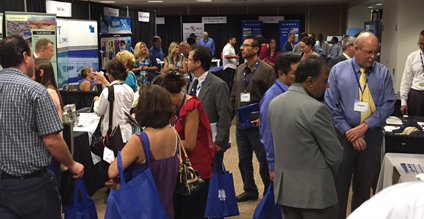
SANBAG Hosts Annual B2B Expo
On Sept. 9, the San Bernardino Associated Governments (SANBAG) hosted its annual Business 2 Business Expo. The annual expo provides an opportunity for those within the region to grow their business, discover new resources, interact with agency representatives regarding upcoming contracting opportunities and network with prime contractors, project managers and other small businesses.
This year’s event showcased 26 local and regional exhibitors, providing networking opportunities for more than 200 attendees. The day’s events also included presentations from SANBAG staff which highlighted current and future contracting opportunities associated with freeway mainline projects, the I-10 and I-15 Corridor Projects and the Redlands Passenger Rail Project.
The event was held at Inland Regional Center in San Bernardino, California.
OC Streetcar Rolls Ahead With Designer Chosen
 The Orange County Transportation Authority’s board of directors selected HNTB Corporation to design the OC Streetcar project, signaling the next major step in the development of Orange County’s first modern streetcar.
The Orange County Transportation Authority’s board of directors selected HNTB Corporation to design the OC Streetcar project, signaling the next major step in the development of Orange County’s first modern streetcar.
The OC Streetcar is planned to travel along a route just longer than four miles from the Santa Ana Regional Transportation Center, through Downtown Santa Ana and the Civic Center, along the Pacific Electric right of way, and connect to a new multimodal transit hub at Harbor Boulevard and Westminster Avenue in Garden Grove. It’s intended to provide easy connections for people traveling from trains and buses to employment, retail and recreational areas.
The certification of the project’s environmental impact report in January and the issuing of a Finding of No Significant Impact in March signaled the completion of the state and federal environmental clearance processes. The selection of a designer was the next step to further advance the project.
Firm proposals were evaluated based on their qualifications, staffing and project organization and work plan. HNTB, a full-service design engineering firm, has worked on numerous streetcar and street-running light rail projects nationwide. The project manager proposed by the firm has served in various design management roles on 12 streetcar projects throughout the U.S.
HNTB has worked with OCTA in the past to provide design services for the Laguna Niguel/Mission Viejo to San Juan Capistrano passing siding project and the Kraemer Boulevard railroad grade separation project.
On the current schedule, construction for the OC Streetcar would begin in 2017, with service beginning in 2020.
Agenda for 2015 California
Economic Summit Firming Up
The California Economic Summit annual gathering is set for Nov. 12-13 in Ontario, the first time it’s been held in the Inland Empire.
Earlier this month the Summit leaders met in Ontario to firm up an agenda that will ask three important questions for California economic development:
- How can we train a workforce with the additional 1 million middle skill credentials and degrees that will be needed in California?
- How do we build the 1 million more housing units needed for low and middle-income Californians?
- How do we save 1 million acre-feet of water annually for the next ten years?
“The goals of the Summit are the key issues in California,” said University of Southern California’s Mark Pisano, who for 31 years served as Executive Director of the Southern California Association of Governments (SCAG). “By concentrating on these issues, and how they impact the regions and localities of California, the Summit is onto something big.”
The Summit, which is a year-round, regions-based approach to creating middle class jobs in California and tackling economic, environmental and equity issues, has attracted hundreds of California civic, business and elected officials since its inception in 2012.
SANDAG Chair and Santee Councilmember Jack Dale at the Trolley Renewal Project celebration event.
Celebration Highlights $660 Million Trolley Renewal
Project Completion in San Diego County
Thousands of people attended a free community event on Sept. 12 at Chula Vista’s E Street Trolley Station, celebrating the completion of the $660 million Trolley Renewal Project.
The event – hosted by the San Diego Association of Governments (SANDAG) and the Metropolitan Transit System (MTS) – marked the end of a five-year effort to renovate and upgrade the region’s Trolley System, which has been in service for more than 30 years.
The event also said “Thank you!” to Trolley riders, residents and businesses that have been patient with the unavoidable inconveniences caused by the renovation work.
“This project is all about the passengers,” said SANDAG Chair and Santee Councilmember Jack Dale. “These improvements will help us build on the 30-year legacy of the Trolley line service. In the end, passengers will have a more comfortable, convenient experience whenever they take the Trolley.”
Thanks to the project, new low-floor trolley cars are now operating throughout the system. All stations are equipped with next-arrival signs, new shelters, and seating. These improvements mean easier access, quicker trips, a more comfortable ride, and an enhanced transit experience for all commuters.
Trolley Renewal is a joint project headed by SANDAG and MTS, with funding provided by TransNet, the regional half-cent sales tax for transportation administered by SANDAG; California Propositions 1A and 1B; and the American Recovery and Reinvestment Act of 2009.
“The Trolley Renewal Project has made vast and significant improvements to the light rail service we provide to nearly 40 million passengers annually,” said MTS Board Chair Harry Mathis. “We’ve made upgrades throughout the system for our riders, including low-floor trains, new tracks and catenary wire, new shelters, next-arrival electronic signs and more. Trips are faster, more comfortable and more convenient thanks to this effort that modernized the entire Trolley system.”
The community celebration featured t-shirt and backpack giveaways, music, raffles, live entertainment, kids’ activities, refreshments, and photo booths, among other amenities.

Transportation Events in the Community
Wednesday, Sept. 30
WTS-IE: Welcome Reception Honoring New Caltrans District 8 Director
More info | Register
Friday, Oct. 2
ASCE-OC: The Path Forward: Infrastructure Advocacy in the 21st Century
More info | Register
Oct. 4-7
APTA: Annual Meeting
More info | Register
Thursday, Oct. 8
OCBC: Workforce Development Conference
More info | Register
Oct. 15-16
California Transportation Foundation: Transportation Education Symposium
More info
Monday, Oct. 19
Los Angeles Sustainability Coalition: California Public Agencies
More info | Register
Wednesday, Oct. 21
CMAA SoCal: LACMTA – Airport Metro Connector Transit Station Update
More info | Register
Thursday, Oct. 22
CMAA SoCal: Inland Empire Owners’ Night
More info | Register
Oct. 25-28
RailVolution: Dallas, TX
More info | Register
Thursday, Oct. 29
OCBC: Economic Forecast Conference
More info | Register
Tuesday, Nov. 3
LA Chamber: State of LA Infrastructure
More info | Register
Thursday, Nov. 5
WTS-LA: Annual Awards Dinner
More info | Register
Nov. 12-13
California Economic Forum
More info | Register
Nov. 15-17
Self-Help Counties Coalition: Focus on the Future Conference
More info | Register
Nov. 15-18
CalCIMA: Annual Education Conference
More info | Register
Wednesday, Nov. 18
OCBC: Turning Red Tape Into Red Carpet Awards Reception
More info | Register
Wednesday, Nov. 18
CMAA So Cal: Student, CMIT and Intern Hiring Fair
More info | Register
Nov. 18-20
California Transit Association: Fall Conference and Expo
More info | Register
Thursday, Dec. 3
WTS-OC: Annual Awards & Scholarships Gala

